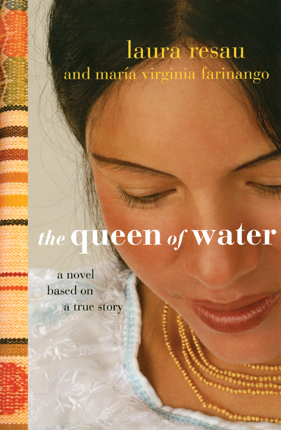Full Text Reviews: Booklist - 02/15/2011 *Starred Review* In a desperately poor Andean village in Ecuador, 7-year-old Virginia is sold off by her indígena (Indian) parents as a servant to an academic, mestizo family. In her new home, the wife beats her, the husband gropes her, and she is insulted as a longa tonta (stupid Indian). Still, she teaches herself to read and write and begins to perform science experiments in secret. Then, when she is 12, she finally gets a chance to return to her parents: But does she want to? And do they want her? Virginia does travel back to her indígena family, but there is not the expected sweet reunion. Ashamed of her illiterate parents and bitter that they gave her away, Virginia is uncomfortable in the family’s mud-walled shack, where she cannot speak the language and hates the hard work. Could she go back to being enslaved in the mestizo family’s clean “prison”? Rooted in Farinango’s true story, the honest, first-person, present-tense narrative is occasionally detailed and repetitive, but it dramatizes the classic search for home with rare complexity and no sentimentality or easy resolutions. Virginia’s conflicts with her birth parents and her employers are heartbreaking, even as she finds a way to attend school and shape a more hopeful future. A moving, lyrical novel that will particularly resonate with teens caught between cultures. - Copyright 2011 Booklist. Bulletin for the Center... - 04/01/2011 Based on the life experience of co-author Farinango, this novel chronicles the experience of an Ecuadorian indígenas child who, at the age of seven in the 1980s, is sent to serve in the home of a well-off mestizos family. Promised an ample monthly wage and regular visits to her village, Virginia is taken from her family’s meager farm in rural Ecuador and assigned the job of helping a couple with their new baby. In all, Virginia spends eight years serving the family, never receives a salary, and loses all contact with her own parents; she is also thrown into a strange cross-cultural existence wherein she is an indígenas living a mestizos life that isn’t really hers. From her arrival, Virginia is brutally and frequently beaten by the woman and, in her teen years, becomes the object of the husband’s sexual advances. At age fifteen, Virginia makes contact with an older sister and returns to her home, only to find that her dreams are far bigger than the village can support. While the novel is largely plot driven, the central theme is that of identity, as Virginia, from a very early age, must grapple with the enormous sociocultural gap between the indígenas and the mestizos; though the theme is carefully explored, at times the narrative loses its child voice and takes on a retrospective adult tone. Occasional plot diversions (a secret boyfriend, an eating disorder) add substance to Virginia’s character, particularly in her teen years but ultimately detract from the narrative’s trajectory. Still, the details of Virginia’s experiences are absorbing, and readers will share both her terror and triumph through the recounting of events. A note details how Resau and Farinango came to collaborate on this novel, and an extensive glossary and pronunciation guide is included. HM - Copyright 2011 The Board of Trustees of the University of Illinois. School Library Journal - 06/01/2011 Gr 9 Up—Based on a true story, and told from the protagonist's point of view, The Queen of Water follows a seven-year-old indígena who was taken from her family in the rural Ecuadoran Andes mountains to be a servant in an urban home. Confused, afraid, and alone, Virginia accepts her captors as parents and loves their children. The prejudice of these mestizos, or middle-class natives, speeds the girl's assimilation, though it comes with a price: an inferiority complex that she confronts slowly as she secretly teaches herself to read. Confusion over whether or not her parents gave her away willingly serves the plot well; Virginia's dilemma doesn't fit neatly into formulas about courage and fighting for justice, although eventually both are within her reach. Her mistreatment by the woman of the house, an overweight, selfish dentist, is humiliating, constant, and disturbing; her husband plays her foil—understanding, even loving, until Virginia reaches adolescence—when he tries to molest her. This is a poignant coming-of-age novel that will expose readers to the exploitation of girls around the world whose families grow up in poverty.—Georgia Christgau, Middle College High School, Long Island City, NY - Copyright 2011 Publishers Weekly, Library Journal and/or School Library Journal used with permission. Loading...
|



